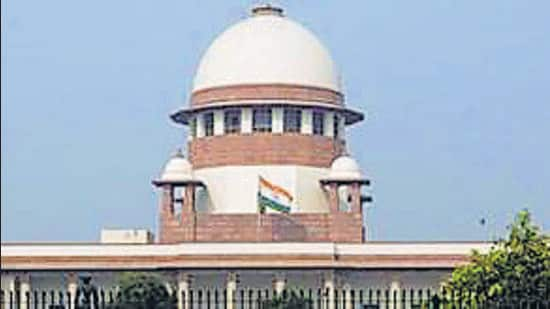
The bench added that it would not matter much even if the state’s February 2022 circular, which made uniform mandatory in government’s educational institutions, invoked a wrong provision of the Karnataka Education Act or the Education Rules to issue instructions.
The Karnataka government had the power to mandate uniform in educational institutions, the Supreme Court observed on Wednesday, as a petitioner challenging the hijab ban argued that the state lacked the authority to impose uniform or proscribe hijab.
“The powers they have. You may argue that their circular could be violative of any statutory provision but to say that they don’t have the power may not be correct,” remarked a bench of justices Hemant Gupta and Sudhanshu Dhulia, as the court continued hearing a bunch of petitions challenging the Karnataka hijab ban.
The bench added that it would not matter much even if the state’s February 2022 circular, which made uniform mandatory in government’s educational institutions, invoked a wrong provision of the Karnataka Education Act or the Education Rules to issue instructions.
“Even if a wrong section is mentioned in the circular, it will not matter much. The difference between a statutory order and an executive order has been done away with after a judgment of this court. Once they have the power to do something, it does not matter really if a wrong section is mentioned...and powers, they have,” the bench told senior advocate Huzefa Ahmedi, who was representing one of the petitioners.
Ahmedi had argued that the February order by the state government lacked authority in law, adding the Education Act does not prohibit hijab but rather accommodate religious differences.
The senior counsel also said that several girl students, who were earlier confined to madrassas and broke stereotypes to join secular educational institutions, will be forced to drop-out yet again and return to madrassas.
But the bench retorted that no such pleadings were laid out before the high court nor was any authentic data given to show that the ban on hijab has led to drop-outs.
“These points were not raised at all before the high court. You are now talking about the drop-out rate etc. In the high court, you argued only that it (hijab) is an essential religious practice and the court said it is not,” the bench told Ahmedi.
At this point, the senior counsel sought to rely on a report by NGO PUCL on the impact of the hijab ban on Muslim girl students but the court remained unimpressed. “How can there be an authentic report on drop-outs? The judgment was in March and we are in September. There can only be projection. We don’t accept PUCL report since it is subsequent to the judgment. There is no pleading that the girls from deprived sections had to leave schools due to hijab,” it said.
Ahmedi, who read out some testimonials from the PUCL report, replied that he has been told that around 17,000 girl students abstained from exams due to the hijab ban.
Basing his submissions on concepts of fraternity, dignity, legitimate state interest, Ahmedi concluded by submitting: “Here is a community which has broken the stereotype and started going to school albeit hijab. They will be forced to go back to theological institutions which will not be in tandem with the secular fabric of the nation and the Preamble.”
On Wednesday, senior advocates Rajeev Dhavan and Aditya Sondhi also made submissions against the March 15 judgment by the Karnataka high court, which held that wearing of hijab by Muslim women does not form a part of essential religious practice in Islam. The petitioners include girl students, women’s right groups, lawyers, activists and Islamic bodies.





















